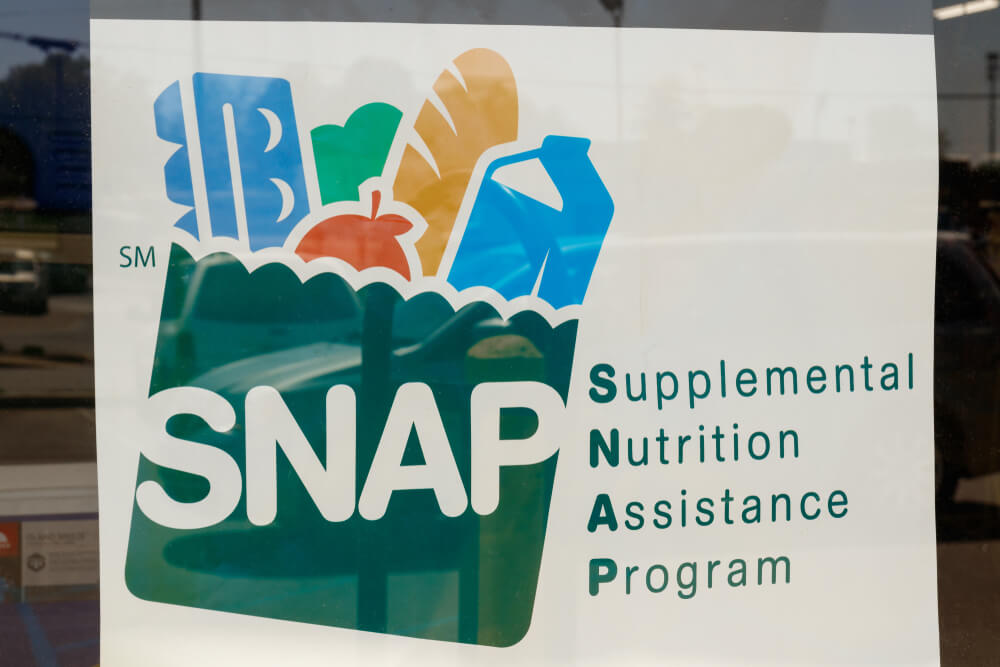There are some harsh critics to the Trump administration’s recent decision to reform the federal food stamp program, but the proposal has shed some light on what lengths some people will go to get a leg up in the system.
The food stamp program, formally known as the Supplemental Nutrition Assistance Program (SNAP), helps some 40 million people not go hungry, but apparently that’s not enough for some. The Trump administration says that around 3 million people are improperly receiving benefits, which led to the reform, according to CNBC.
“It’s an epidemic,” Todd Spodek, a New York attorney who represents clients accused of SNAP fraud, said during an interview with CNBC’s “American Greed.”
But the reform has met some resistance. On Aug. 21, a group of 70 mayors from around the country drafted a letter asking the administration to reconsider the reform because it would put millions of people at risk. All it takes is a few bad apples to ruin it for everyone that actually needs the assistance.
“Anytime you have a public welfare system where millions of dollars are at their disposal, someone’s going to be creative enough to try to find a loophole to take advantage of it,” Spodek said.
Lyle Jeffs may take the cake for biggest scumbag to find and take advantage of one of these loopholes. The former leader of the Fundamentalist Church of Jesus Christ of Latter-Day Saints is serving a five-year prison sentence after developing a scam that skimmed $2 million dollars from the SNAP program. How’d he do it? By forcing hungry families to illegally divert their benefits to a church “storehouse,” which led to money in the church coffers and in Jeffs’ own pockets.
“It was very difficult as a mother to watch my kids go without. To have a little child come and ask for food and I had nothing to give him,” former church member Cheryl Barlow told “American Greed.”
The best part? One of Jeffs’ perks while living large was a personal chef.
Here’s a further breakdown of the SNAP fraud issue, and some of the hurdles facing the Trump administration’s reform ideas, per CNBC:
By the numbers
On the whole, SNAP fraud is significant, but by the numbers it is a relatively small percentage of the more than $60 billion in benefits paid each year by the program, which is administered by the U.S. Department of Agriculture.
In testimony before a congressional subcommittee last year, USDA Assistant Inspector General Ann Coffey said that in the past five years, her office had recovered $463 million in improper payments, fines and penalties and secured 2,335 criminal convictions.
Meanwhile, the USDA announced in July that its official error rate for SNAP payments was 6.8% in fiscal 2018, up from 6.3% the year before.
While the agency stresses that the error rate includes both overpayments and underpayments — so it is not a measure of fraud — officials are concerned.
“Any error rate in a $60 billion program impacts the bottom line significantly,” Brandon Lipps, USDA’s acting deputy under secretary for Food, Nutrition and Consumer Services, said in a statement.
Most SNAP fraud is on a much smaller scale than the Jeffs case. Spodek said it happens on both sides of the check stand.
“You have recipient SNAP fraud, where someone improperly obtains benefits, whereas they either lie to get the benefits or they omit information to get the benefits, and then you have retail fraud where you have someone who accepts SNAP benefits committing fraud like kickbacks to customers or selling impermissible items,” he said.
Spodek said many recipients break the law without realizing it, such as obtaining benefits in one state, then moving to another state and trying to use the benefits there. Or they lend their benefit card to a friend or family member, which is illegal. He also notes that SNAP recipients are required to report any changes in their employment or income. Many either fail to report, or leave out crucial details.
“My advice to anyone who is going through the process of obtaining welfare benefits is to be 100 percent forthright in your situation,” he said. “Don’t make a choice whether you’re going to disclose something or not. Tell them every bank account you have. Tell them every person that lives in your household.”
The risk of reform
The Trump administration proposal aims to close what it calls a loophole that it says allows states to approve SNAP benefits without checking on the recipient’s assets. The administration says the proposal could save an estimated $2.5 billion per year. But in a letter to the USDA on Aug. 21, 70 mayors from across the country warned that the proposal would put millions of vulnerable Americans at risk.
“For instance, 80% of SNAP households include a child, an elderly person, or a person with disabilities; and 85% of all SNAP benefits go to such households,” the letter said.
In addition to the proposed rule change at the USDA, law enforcement agents are making greater use of data from the electronic SNAP transactions to root out fraud. In the case of Jeffs, investigators discovered an inordinate amount of purchases at church-affiliated convenience stores, some of the transactions improbably large.
“It was an incredible fraud flag. If you have a $4,500 transaction at the counter of a small convenience store, that raises eyebrows,” IRS special agent Joel Ernst told “American Greed.” “What are you buying for $4,500 at a convenience store?”
Authorities are also appealing to the public for help.
If you see or hear about SNAP fraud, contact the USDA Office of Inspector General at (800) 424-9121, or submit a complaint online.
